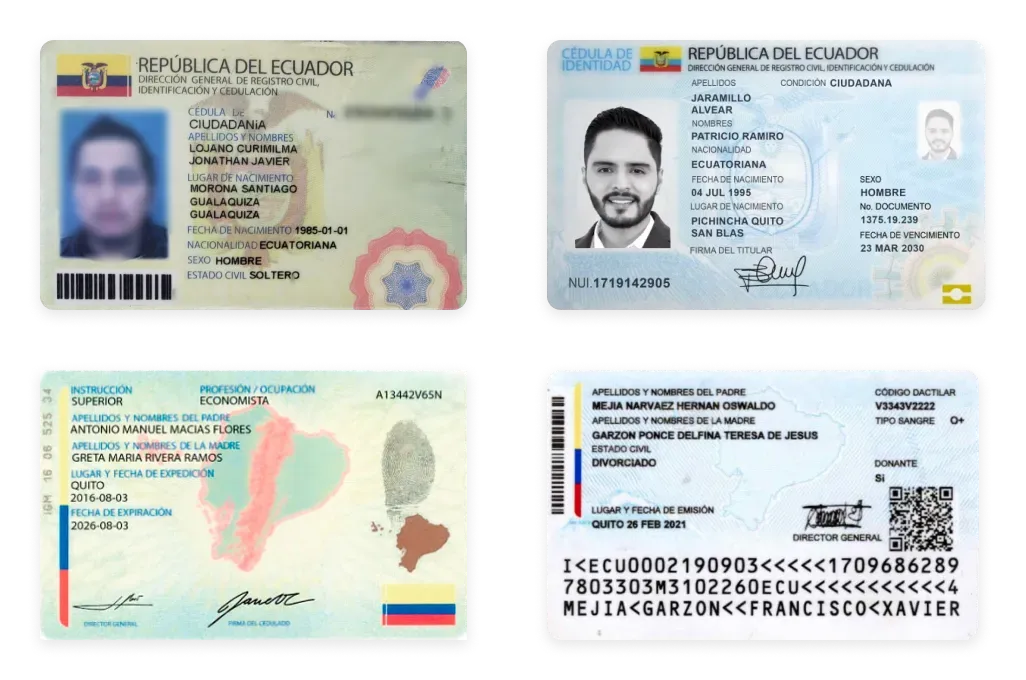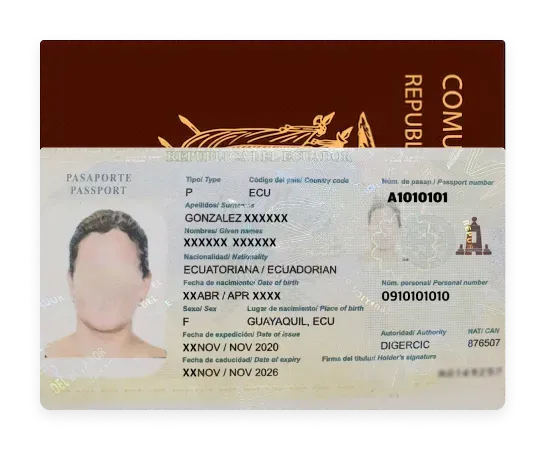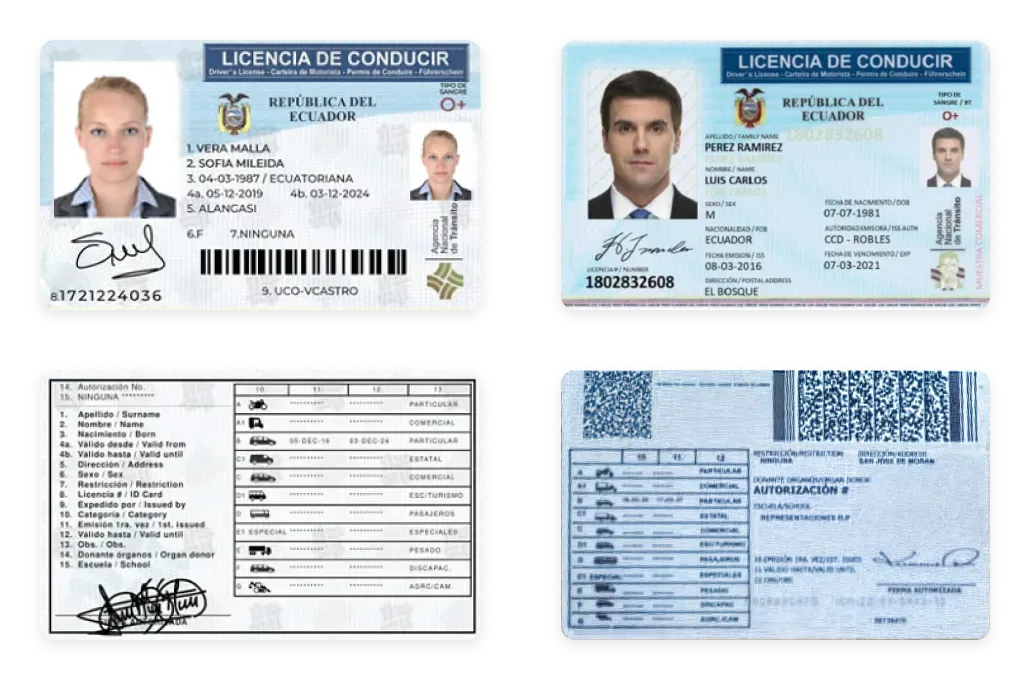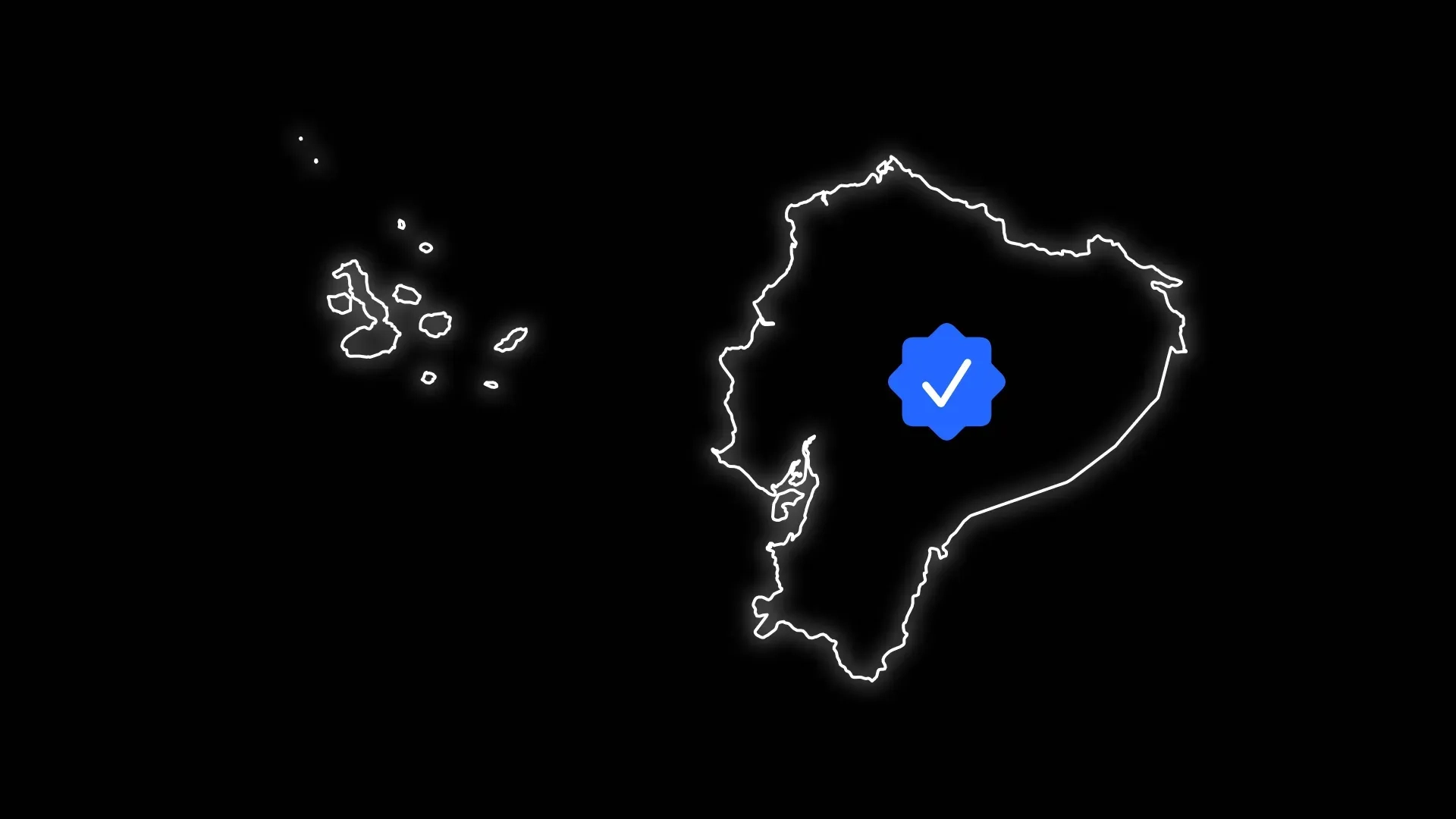Key Takeaways
Ecuador faces a critical challenge with money laundering, estimated between $3.5 billion and 5% of GDP annually, driving the need for robust KYC and AML processes in the national financial system.
Ecuadorian legislation has evolved significantly, with the new Organic Law for Prevention, Detection, and Combat of Money Laundering published in July 2024, introducing advanced technological mechanisms to detect illicit financial activities.
Ecuadorian financial institutions have implemented identity verification systems that reduce document fraud attempts by up to 65%, using artificial intelligence technologies and biometric analysis.
The Financial and Economic Analysis Unit (UAFE) plays a fundamental role in detecting suspicious transactions, having identified $285 million potentially laundered in 2023, mainly from drug trafficking and corruption.
It is estimated that more than $3.5 billion was laundered in Ecuador during 2021, representing between 2% and 5% of the GDP annually. According to the Latin American Center for Strategic Analysis (CELAG), this figure triples the amounts recorded between 2007 and 2016. Faced with this situation, KYC (Know Your Customer) and AML (Anti-Money Laundering) processes in Ecuador have become critical elements for the integrity of the Ecuadorian system. Mainly, KYC plays a fundamental role in the detection and prevention of financial crimes, acting as the first line of defense against illicit activities that can undermine the country's economic stability.
Let's talk about data: over 85% of Ecuadorian financial institutions and other active entities are compliant, responding to a context where it is estimated that 3.2% of Ecuador's GDP is at potential risk of money laundering. The regulations reflect a fundamental change in the national strategy to prevent these economic crimes, where identity verification and customer knowledge have become essential barriers against fraud.
The challenges are numerous: from implementing cutting-edge technologies to constantly adapting to increasingly demanding regulations. Ecuadorian companies must not only comply with local regulations but also align with international standards that guarantee transparency and security in financial transactions.

The Legal Framework of KYC and AML in Ecuador: Regulatory Requirements
Ecuador has developed a robust regulatory framework to combat money laundering and the financing of terrorism, consolidating an increasingly sophisticated financial prevention system. The regulatory evolution reflects the national commitment to align with international standards of compliance and document verification.
The Financial and Economic Analysis Unit (UAFE) has been fundamental in this process. In 2023, the institution detected $285 million potentially laundered, mainly from drug trafficking and corruption, according to statements from its former director Roberto Andrade.
Organic Law for Prevention, Detection, and Eradication of Money Laundering Crime
Originally published in July 2016, this law marks a turning point in Ecuador's strategy against financial crimes. Its main objective is to create an ecosystem of transparency and control that deters and detects suspicious operations.
The National Committee for Prevention of Money Laundering (Conalaft) has been crucial in coordinating inter-institutional efforts, establishing an integral system of identity verification that goes beyond simple document review.
New Organic Law for Prevention, Detection, and Combat of Money Laundering Crime
The most recent version, published on July 29, 2024, represents a qualitative leap in regulation. Not only does it expand the scope of the previous legislation, but it also introduces more sophisticated technological mechanisms for the detection of illicit activities.
Obligated subjects now face stricter requirements:
- Implementation of artificial intelligence systems for pattern detection
- Real-time reporting of suspicious operations
- Cross-checking with international databases
This new regulation reflects the understanding that compliance is no longer an option but a strategic necessity for the integrity of the Ecuadorian financial system.
Resolutions of the Financial Policy and Regulation Board
The most recent resolutions, especially JPRF-V-2024-0117, represent a critical evolution in the regulation of AML in Ecuador. The focus has shifted from a reactive model to a predictive one, where prevention becomes the main objective.
Key elements include:
- Digitization of verification processes
- Interconnection of control systems
- Continuous updating of risk profiles
Norms for Financial Institutions
For its part, the Superintendency of Banks has established a regulatory framework that goes beyond mere regulation. It is a practical guide for the digital transformation of compliance.
Thus, institutions must develop:
- Continuous monitoring systems
- Due diligence protocols
- Transparent reporting mechanisms
Identity Verification in Ecuador: A Challenge for Companies
Identity verification in Ecuador represents a complex challenge that transcends simple document validation. The Ecuadorian financial ecosystem navigates a terrain where security and technological efficiency are constantly interlinked.
Financial institutions and digital service companies find themselves at a critical crossroads: balancing a rigorous security with a fluid user experience. The rate of identity theft is close to 0.8% in digital transactions, highlighting the urgent need for more intelligent and adaptable verification systems.
The challenges multiply: from the documental heterogeneity to limitations of legacy technological systems, passing through an ever-evolving regulatory framework. The Superintendency of Banks and the Financial and Economic Analysis Unit (UAFE) demand increasingly sophisticated verification processes.
A revealing fact marks the path: institutions that implement state-of-the-art verification systems reduce up to 65% of document fraud attempts, like AI-generated documentation. Identity verification is no longer an administrative process but has become a critical line of defense against financial crimes.
Challenges in Document Verification in Ecuador
Document verification in Ecuador represents a complex ecosystem of identification that reflects the sophistication of the national system. Each document is configured as a critical repository of information for compliance and security processes, transcending its original function of simple identification.
National Identity Card
The Ecuadorian national identity card emerges as probative evidence with legal value equivalent to a birth certificate. Issued by the Civil Registry, its acquisition process is meticulous and requires an exhaustive validation of personal, educational, and professional information. Citizens must obtain it mandatorily upon turning 18, and its periodic renewal is regulated through a control system that even contemplates sanctions for noncompliance.

Ecuadorian Passport
The Ecuadorian passport represents the citizen's identity beyond national borders. Its issuance involves a verification process that integrates advanced biometric technologies, capturing not only personal data but also digital information like fingerprints and photographs with international security standards. The Ministry of Foreign Affairs has implemented protocols to ensure document production with multiple security layers, significantly reducing the chances of forgery.

Driver's License:
The system of driver's licenses in Ecuador stands out for its regulatory complexity. Far from being a uniform document, it contemplates multiple categories ranging from private vehicles to specialized machinery, each with specific requirements for obtaining and renewal. Mandatory psychometric tests and differentiated validity according to the category demonstrate a comprehensive approach that prioritizes road safety and driver professionalization.

Didit: Transforming Identity Verification and KYC and AML Compliance in Ecuador
The digital transformation of compliance in Ecuador finds in Didit a strategic ally for identity verification and the prevention of financial crimes. We offer a free, unlimited, and forever KYC technological solution. Additionally, with our optional AML Screening service, adapted to the Ecuadorian ecosystem, you can lay the foundations for your regulatory compliance.
The artificial intelligence algorithms developed by Didit overcome the traditional limitations of document verification. Our system is capable of detecting inconsistencies in identity documents and extracting the necessary data to carry out identity verification.
Facial recognition constitutes another fundamental pillar of our technology. We implement personalized artificial intelligence models that go beyond simple biometric comparison. Our passive liveness test integrates multiple verification layers, ensuring that the user's identity is authentic and not an attempt at impersonation.
The optional AML Screening represents another more advanced line of defense. We perform real-time verifications against more than 250 global datasets, covering a universe of over a million entities on watchlists. This process allows Ecuadorian companies to comply not only with local regulations but also with international anti-money laundering standards.
What Documentation Does Didit Verify in Ecuador?
Didit has designed a solution specifically adapted to the Ecuadorian context, with verification capability for:
- National Identity Card
- Passport
- Driver's License

In summary, for the Ecuadorian market, Didit means:
- Full compliance with local KYC and AML regulations
- Operational cost reduction of up to 90%
- Verification processes completed in less than 30 seconds
Are you ready to revolutionize identity verification in Ecuador? Our solution is not just a tool; it's a technological transformation adapted to your reality.

